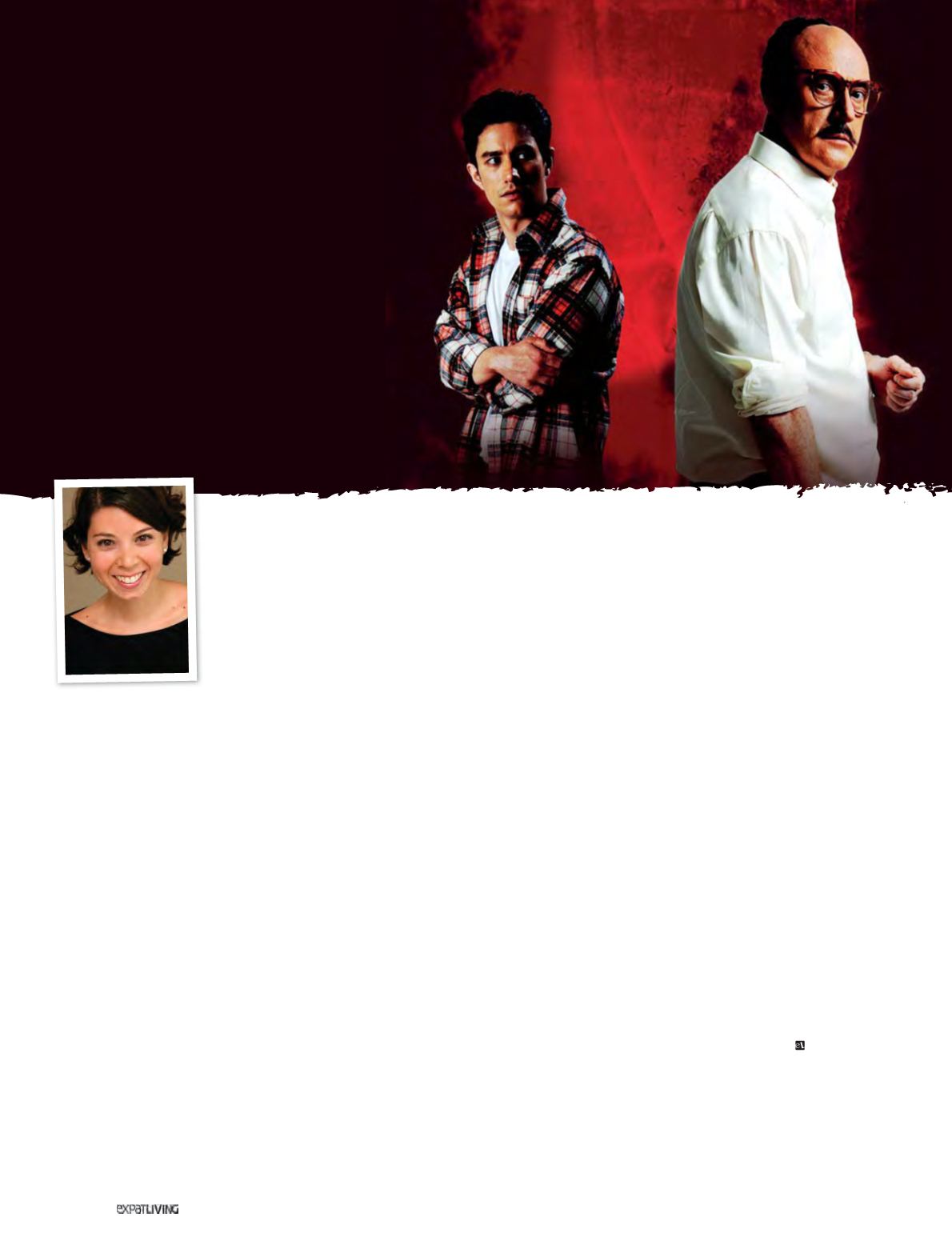

172
July14
Set in 1958 New
York,
Red
follows
MarkRothko, one of
the most influential
artists of the Abstract Expressionist
movement, as he works in his studio
and fires questions at his new assistant,
Ken, sparking an intense philosophical
debate on life, art, culture and Nietzsche.
This fictional drama by American
playwright John Logan contemplates the
fundamental questions of creation and
experience, delving into the relationship
between art and commerce, and the
master-apprentice dynamic.
What drew you to Red?
When I heard
Red
was a bio-drama
about Rothko, my ears pricked up.
My previous collaboration with the
Esplanade was a bio-drama depicting
legendary psychoanalyst Sigmund
Freud in a meeting with the novelist and
theologian C.S. Lewis. Its content and
its investigation of real-life characters
drew interest from audiences, so I
was immediately sold on the premise
of
Red
. The action throws audiences
into Rothko’s headspace from the
get-go; there’s no cushy start allowing
audiences to warm up. As soon as wide-
See
Red
from 10 to 13 July at
Esplanade Theatre Studio, 1
Esplanade Drive. Tickets from Sistic.
thestudios.com.sg
This month, the Tony Award-wining bio-drama,
Red
, will hit the Esplanade Theatre Studio stage.
We asked its director, SAMANTHA SCOTT-
BLACKHALL, for a sneak peek.
eyed Ken enters the studio, his new boss
fires questions at him. I’m drawn to a
challenge and, dramatically, visually and
intellectually, this play is definitely that.
Have you made any changes or
local adaptations to the original?
I’ve not made any changes to the play.
In fact, I feel it’s my responsibility as
a director to ensure the character of
Rothko (played by Daniel Jenkins)
and the world we re-create on
stage is seen and performed with a
certain accuracy, supported by an
understanding of his work, his life, his
beliefs and his passion as an artist.
Do you have a favourite scene?
There’s a very exciting moment when
Rothko and Ken prime a six-by-six-foot
canvas – a task they must finish within
the time limit of a three-minute piece of
music. As in a dance, they step around
each other, brushes flailing, paint
splattering, in somewhat choreographed
movements until the canvas is
completely covered with red paint. I
love this play because it’s so hands-on.
The actors are constantly mixing paints,
stretching and priming canvases while
engaging in philosophical debate.
What messages or feelings are
you hoping audiences will come
away with?
Red
takes audiences on an intellectual
debate about life, art, politics, love and
literature. Ken isn’t only challenged
by the very stubborn Rothko, but also
manages to challenge him. You end up
watching a tennis match of ideas, and
can’t help but take sides.
At one point in the play, Rothko
screams, “I’m not here to make pretty
pictures!” His art intends to contain so
much more than what the eye digests.
Rather, it’s about feelings, and it’s the
spectrum of emotions that the actors
evoke that draws audiences into more
than just a debate on differing opinions;
it’s a journey of passion.
How do you think Singapore
theatre has evolved in recent
years?
With more theatre companies on the
scene, there’s so much happening at
any one time, and the choice of things
to watch – dramas, musicals, original
works, sound and light narratives,
physical theatre, plays in English and
plays in Chinese – is vast! I’m excited
to be part of such a vibrant scene.
In
the
Studio
By Amy Greenburg
ARTS&LEISURE



















